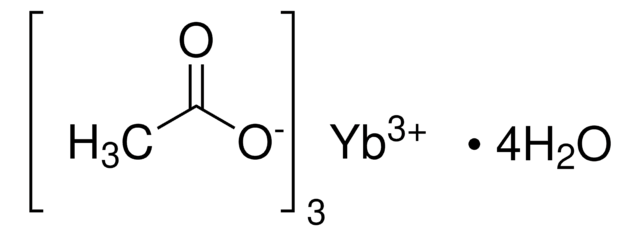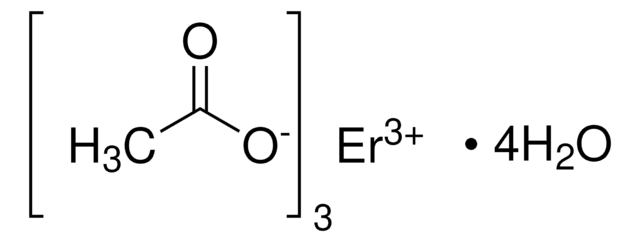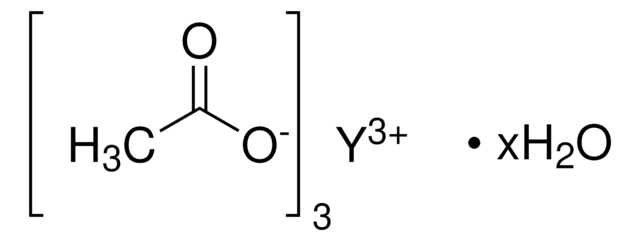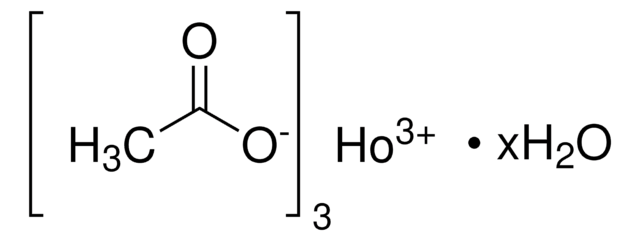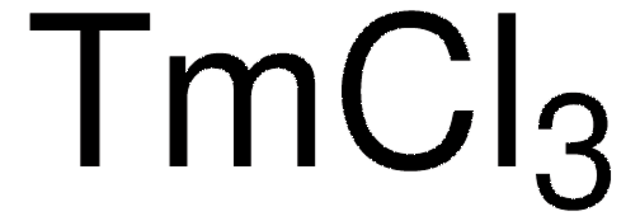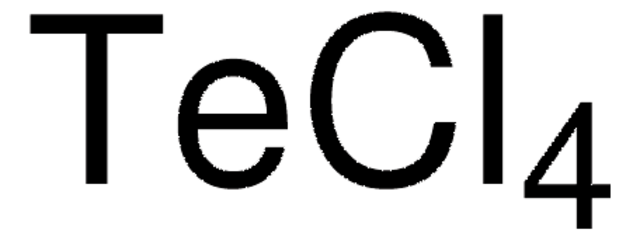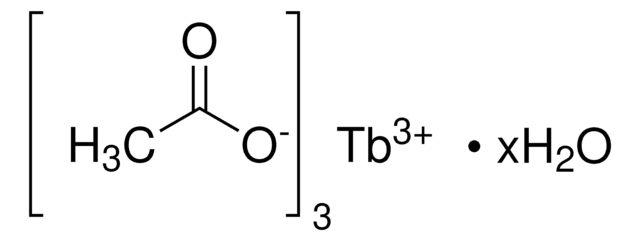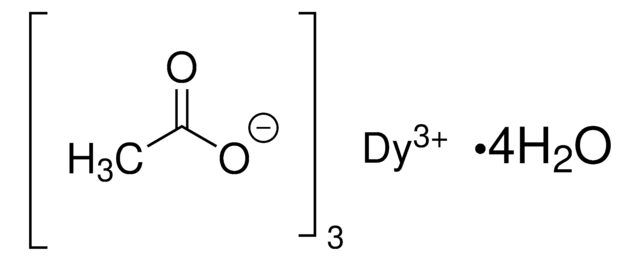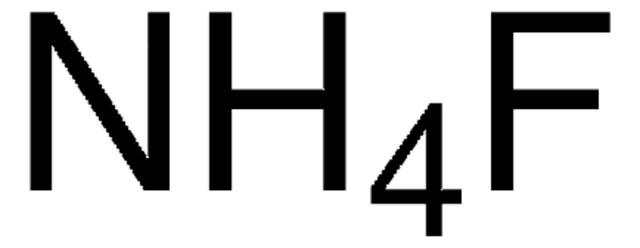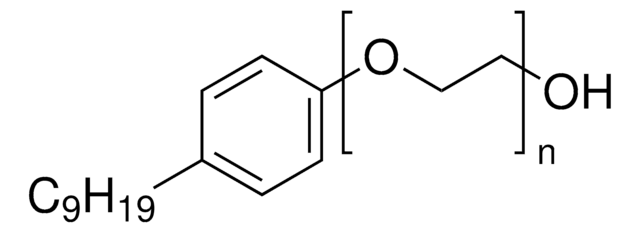367702
Thulium(III) acetate hydrate
99.9% trace metals basis
Sinónimos:
Thulium(III) acetic acid salt hydrate
Iniciar sesiónpara Ver la Fijación de precios por contrato y de la organización
About This Item
Fórmula lineal:
(CH3CO2)3Tm · xH2O
Número de CAS:
Peso molecular:
346.07 (anhydrous basis)
Número MDL:
Código UNSPSC:
12161600
ID de la sustancia en PubChem:
NACRES:
NA.22
Productos recomendados
Ensayo
99.9% trace metals basis
Formulario
powder
idoneidad de la reacción
core: thulium
reagent type: catalyst
cadena SMILES
O.CC(=O)O[Tm](OC(C)=O)OC(C)=O
InChI
1S/3C2H4O2.H2O.Tm/c3*1-2(3)4;;/h3*1H3,(H,3,4);1H2;/q;;;;+3/p-3
Clave InChI
GKCQSJXCECKBHO-UHFFFAOYSA-K
Descripción general
Thulium(III) acetate hydrate is a chemical compound containing the rare earth element thulium. It can be used as a precursor in the synthesis of core-shell nanocrystals.
Código de clase de almacenamiento
11 - Combustible Solids
Clase de riesgo para el agua (WGK)
WGK 3
Punto de inflamabilidad (°F)
Not applicable
Punto de inflamabilidad (°C)
Not applicable
Elija entre una de las versiones más recientes:
¿Ya tiene este producto?
Encuentre la documentación para los productos que ha comprado recientemente en la Biblioteca de documentos.
Los clientes también vieron
Yuejiao Xian et al.
PloS one, 15(4), e0221180-e0221180 (2020-04-23)
At the molecular level, the circadian clock is regulated by a time delayed transcriptional-translational feedback loop in which the core proteins interact with each other rhythmically to drive daily biological rhythms. The C-terminal domain of a key clock protein PER2
Qianqian Su et al.
Frontiers in chemistry, 8, 836-836 (2020-10-24)
Lanthanide-based upconversion nanoparticles can convert low-energy excitation to high-energy emission. The self-assembled upconversion nanoparticles with unique structures have considerable promise in sensors and optical devices due to intriguing properties. However, the assembly of isotropic nanocrystals into anisotropic structures is a
Qiyue Shao et al.
Nanoscale, 9(33), 12132-12141 (2017-08-15)
Upconversion nanoparticles (UCNPs) are an excellent choice to construct security features against counterfeiting, owing to their unique NIR-to-VIS upconversion luminescence (UCL) characteristics. However, the application of upconversion materials is limited, due to their single and invariant emission colors. Herein, the
Shihua Li et al.
ACS nano, 13(2), 2103-2113 (2019-01-16)
The exploitation of gas therapy platforms holds great promise as a "green" approach for selective cancer therapy, however, it is often associated with some challenges, such as uncontrolled or insufficient gas generation and unclear therapeutic mechanisms. In this work, a
Hongxin Zhang et al.
Physical chemistry chemical physics : PCCP, 19(27), 17756-17764 (2017-06-29)
We report optical depletion of upconversion luminescence (UCL) in NaYF
Nuestro equipo de científicos tiene experiencia en todas las áreas de investigación: Ciencias de la vida, Ciencia de los materiales, Síntesis química, Cromatografía, Analítica y muchas otras.
Póngase en contacto con el Servicio técnico